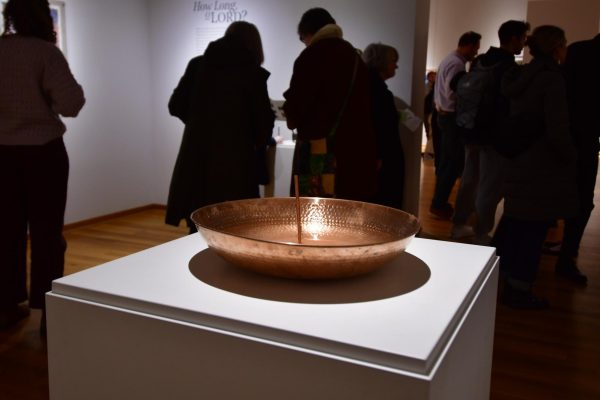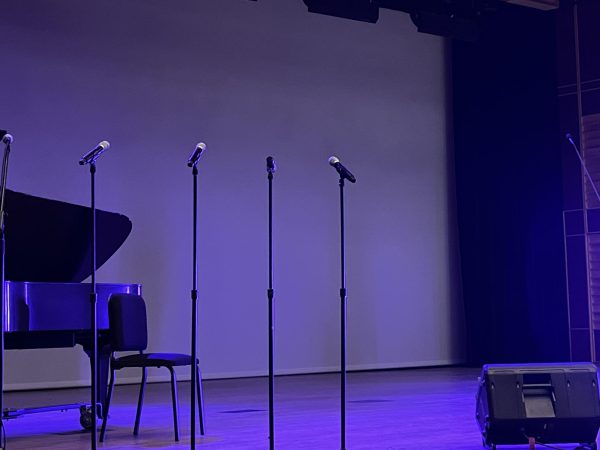“The Big Sick” good example for rom-coms
“The Big Sick” isn’t your typical boy meets girl story..
This past summer, the indie-comedy crossover took the world by storm as audiences fell for Kumail Nanjiani and Emily V. Gordon’s real-life love story. Co-written by the couple, “The Big Sick” doesn’t just offer lots of laughs, but also a portrait of American life that is poignant to this generation.
Nanjiani, who plays himself in the film, is a 30-something Pakistani comedian trying to make it big in Chicago. During one of his stand-up shows, he is heckled by Emily (Zoe Kazan), a quick-witted American graduate student. After a few drinks and bad pickup lines, the connection between the two deepens with a chemistry so strong, it’s almost palpable.
But, as the genre requires, the romance doesn’t last long. Kumail struggles to find a middle ground between his feelings for Emily and the expectations of his conservative, Muslim family. His parent’s request, along with wishing Kumail would find a different career path, is for him to marry a Pakistani woman;a clear problem considering his current relationship.
Things get more complicated when Emily is diagnosed with a distressing illness that leaves her in a medically-induced coma. Kumail, already conflicted by his feelings for Emily, finds himself in the company of her spunky parents, Beth (Holly Hunter) and Terry (Ray Romano). As Kumail’s bond with Emily’s parents strengthens, his connection to his own family weakens—causing him to question what’s truly important in his life.
The family dynamic in this film adds a unique twist that makes the movie more relatable, particularly for first-generation Americans. In one of the most poignant scenes in the film, Kumail explains to his parents why he can’t do what they ask of him.
“I really appreciate everything you’ve done for me,” Kumail says. “And I know that Islam has been really good for you, and has made you good people. But I don’t know what I believe. I just need to figure it out on my own.”
Kumail states what almost every first-generation American has struggled with at some point in their lives: to be caught between the culture that you know and the one that you are currently experiencing is one of the hardest things to make peace with. The film does a great job of adding depth to Kumail’s character which helps the audience understand the tensions that first-generation Americans experience, between who they are and who they want to be.
It is this type of character development that sets this movie apart from your typical love story. Although “The Big Sick” follows the formula of a traditional romantic comedy—with Kumail and Emily’s meet-cute and romantic movie montage—the depth of each character and the way that they navigate their relationship adds a unique dimension that enhances the movie’s authenticity.
The film also exceeds at showing the small ways that Kumail and Emily grow together, without shying away from the real struggles that interracial couples encounter. Since romantic comedies are coming out fewer and farther between, one can hope that “The Big Sick” sparks a whole new generation of films that go beyond the typical boy meets girl story.
A screening of “The Big Sick,” hosted by Calvin’s Student Activities Office, played on Wednesday, October 18 for UnLearn week.





